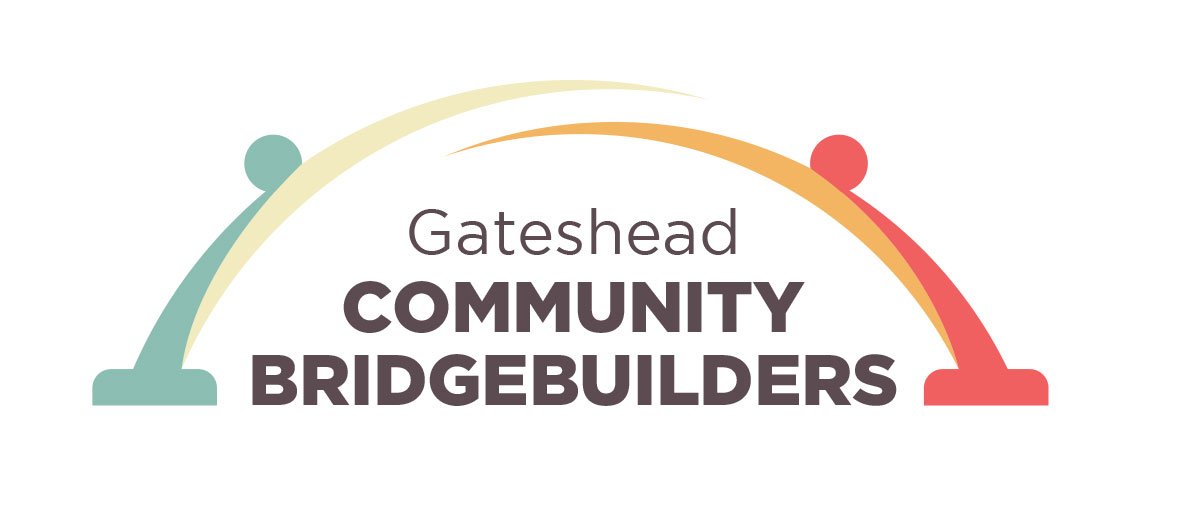Community Spirit, Community Power: Tackling the isolation of young Deaf people
In November 2023 we held an event at The Glasshouse, Gateshead, called ‘Community Spirit, Community Power’. Members of the GCB team gave speeches about their experiences, their work and their ideas. These blog posts are drawn from those speeches…
Discussions at our ‘Community Spirit: Community Power’ event.
From speech by Paul Kerr:
I previously worked for 15 years at North Tyneside Citizens Advice Bureau as a Caseworker providing face-to-face advice to people. Then, I worked for 5 years for Changing Lives, an organisation which works with people experiencing social exclusion and long-term deprivation. I then went on to the Office for National Statistics as a Census Engagement Manager for Newcastle.
I was always used to working in a structured way, meeting targets and funders’ expectations, so when I took on the role as a Gateshead Community Bridgebuilder it was a bit of a culture shock. It is all about developing relationships, connecting with communities and marginalised groups who are not in contact with each other.
A major part of my work has been around support for the d/Deaf community. Isolation is a common challenge that many young deaf people may face, which can be due to a variety of factors coming out of barriers to communication and social interaction. In fact, a recent report by Sign Health[1] found that more than one in three deaf people had reported struggling with their mental health during the pandemic, with their biggest issue being social isolation.
Here are some of the key factors that contribute to the isolation of young deaf people:
• Lack of access to sign language or interpreters
• Lack of awareness and understanding: Many hearing individuals may lack awareness and understanding of deaf culture and communication, leading to social isolation.
• Mainstream schools: Deaf students may be the only or one of a few deaf individuals, which can lead to feelings of isolation due to differences in communication and culture.
• Deaf young people may lack role models who have successfully navigated the challenges of being deaf and can provide guidance and support.
• Coping with the psychological and emotional impact of deafness can be difficult, and some deaf individuals may experience anxiety, depression, or low self-esteem, which can contribute to social isolation.
My main focus has been mental health and deafness, including working closely with researchers from the North East Deaf network. Speaking to deaf communities it was clear that there was not a lot happening for young deaf people in Gateshead. This led us to the idea of holding a North East Deaf Festival.
So why a North East Deaf Festival?
We held a meeting in May 2023 with Deaf professionals and emerging artists. The group want to develop a two-day festival that will be a celebration of deaf culture, language and heritage. The main aim is to encourage leadership and learning experiences amongst young deaf people.
This is unique to the North East and will enable Deaf people to showcase their work. It will feature drama, magic, comedy, cabaret, poetry, storytelling, photography, animation workshops and exhibitions. Information will be accessible for all through the medium of sign language interpreters or technology for deaf people.
The festival will give local deaf artists an opportunity to display their work and give emerging artists an opportunity to develop their skills in the arts. It will link the old and the young and promote deaf awareness. We want to empower people through showcasing positive deaf role models and opportunities to take part through volunteering or learning a new skill. It will also educate professionals to best support deaf and hard-of-hearing people, and signpost deaf and hard-of-hearing people and their families to local and national provisions available.
To borrow the words of Hearing Link Services: ‘It is estimated that there are approximately 11 million people in this country with a hearing loss, which makes it the second most common disability in the UK. As an invisible disability, it so often goes unnoticed, making it easier for those living with hearing loss to be ignored or forgotten.’ [2]
This section of society is poorly served by the arts and cultural sector and at the same time, despite the enormous talent among deaf performers and entertainers, they are rarely welcomed into the mainstream of performing arts. It will also give hearing audiences an opportunity to discover more about deaf, culture and heritage.
There is good evidence to suggest deaf people across age ranges have higher rates of mental health problems, in comparison to their hearing peers. There are a range of reasons for this including biological, psychological, social, linguistic and cultural challenges of living in an overwhelmingly hearing world.
The festival will highlight the wonders of deaf culture and its arts which will be a showcase of how communities can come together to enjoy inclusive and accessible entertainment, stories and cultural enrichment.
[1] https://signhealth.org.uk/wp-content/uploads/2020/09/Coronavirus-Impact-Survey-Results.pdf
[2] https://www.hearinglink.org/your-hearing/about-hearing/facts-about-deafness-hearing-loss/

